MALAYSIANSKINI | Once known only as the "girl with the guitar", 36-year-old Wani Ardy found her voice through music and the spoken word and is now on a mission to normalise conversations surrounding sexual health.
In the middle of the Covid-19 pandemic, the Subang Jaya native released her debut full-length album Raskat last year and is involved in several ongoing writing projects.
Wani Ardy is the stage name for Nur Syazwani Abdul Rahim, a former lecturer who also goes by the name Guritno Purwakanti, a moniker chosen as a tribute to her love for poetry and her late grandfather's Javanese ancestry.
She is also a woman born without a uterus and with an underdeveloped vagina, a rare condition known as Mayer Rokitansky Kuster Hause (MRKH). While little is known about it, it impacts one in every 5,000 women.
Wani's journey to raise public awareness led to her latest assignment where she was a script advisor for a local television drama that featured a leading character with MRKH.
The chosen title "Rahimah Tanpa Rahim" caught public attention even before the series was aired, with some netizens questioning whether "Rahim" was a man's name or a literal reference to a woman's uterus which they claimed would be inappropriate.
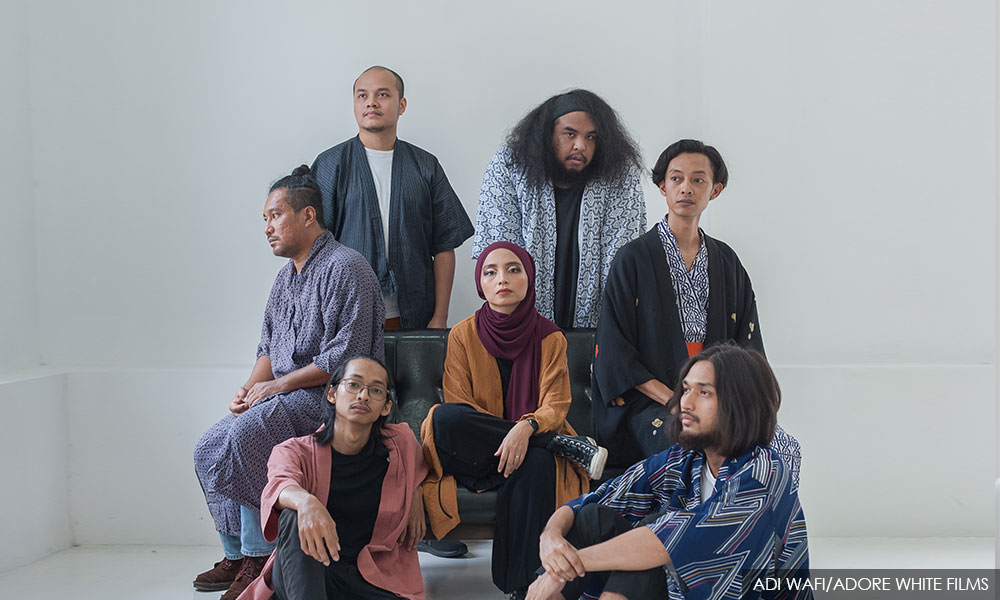
"I don't like it when people are afraid to talk about sexual health but they don't feel ashamed to make vulgar jokes.
"For example, every time when I do my advocacy work, I use the term vagina, uterus, holes... every now and then someone will say I am being too blunt.
"I don't think I am. But if you think I am, that's because you're not used to having normal conversations about sexual health," she told Malaysiakini in a recent interview.
As a young performing arts student nearly 20 years ago, Wani kept her medical condition largely a secret and instead gained a reputation as one of the few girls who could write and play their own songs.
With encouragement from her friends, Wani went beyond their Shah Alam campus to explore the local gig scene, at the time mostly centred around more upscale establishments.
"There I went, a girl, playing my own songs written in Malay.
"But I just forged on because those were the only available opportunities. From there, I gained the courage to join local art events," she said.
Along the way, Wani said she studied her own condition, although it wasn't until many years later that an encounter with a fan and fellow "MRKH girl" led to her role as founder of the MRKH Malaysia Support Group with over 200 members nationwide.
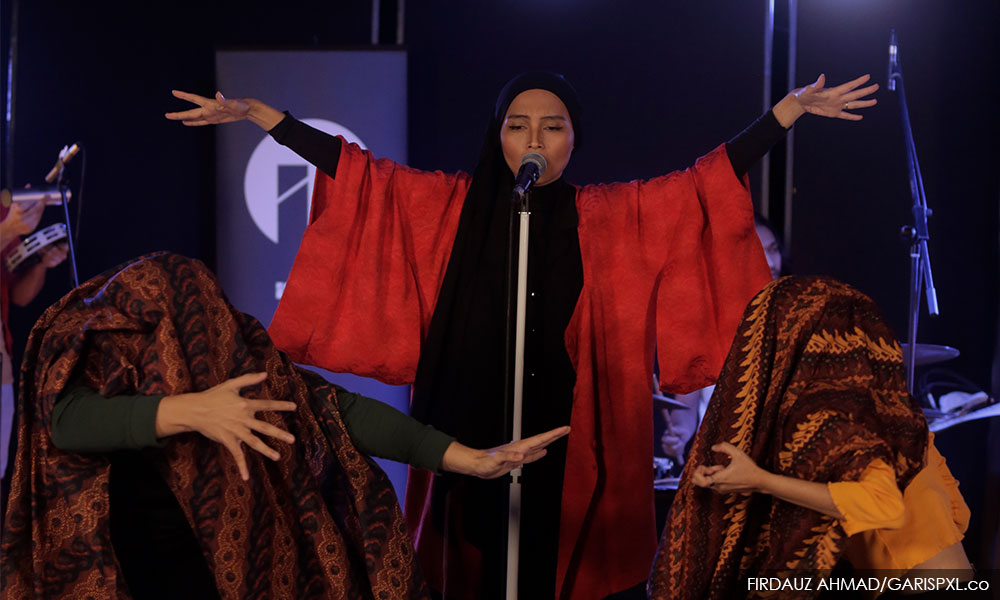
These days, the singer-songwriter, author, poet, playwright, copywriter, wife and mother to an eight-year-old son named Ikhlas, describes herself as a women's health advocate.
Here is Wani's story in her own words:
I DISCOVERED THE TERM 'MRKH' ON MY OWN, THROUGH SEARCHING THE INTERNET. None of the doctors told me and I went to see many doctors, one after the other. But I don't blame them because it is a rare condition.
For all of them, I was their first MRKH patient. As they were examining me, I could see it in their clueless expression, "Why can't they find the organ (uterus)?"
It was important for me to know because it enables me to relearn my body. Once I have a name, then I can find out how to live with it, what kind of treatment or therapy is available.
In my 20s, the Internet was on the rise and I became an information freak. But this was information I could not get from my doctors.
A GIRL WITH MRKH DOES NOT HAVE THE HOLE FOR INTERCOURSE. We do have the hole to urinate, but because these two are very closely positioned, it is quite common for MRKH girls to have bladder and kidney problems.
Available treatments include surgical or non-surgical procedures. Dilation is often used as a non-surgical option, using dilators to increase vaginal depth.
I WAS REALLY ON MY OWN UNTIL EVENTUALLY, I FOUND A SUPPORT GROUP IN THE UNITED STATES. I joined the group and it changed my life.
It was my first time talking to another MRKH person. It was just on Skype but that whole experience was really empowering. The ability to talk about the same experiences was like "wow!"
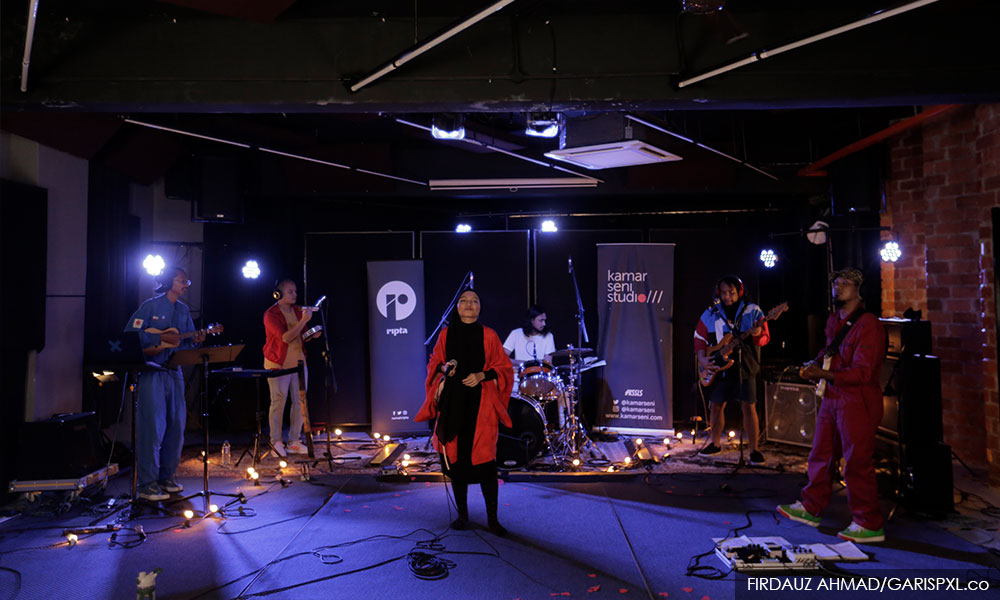
This person I'm looking at, she doesn't have a uterus like me, she doesn't have a vagina like me. We spoke for hours.
I felt like, just imagine if I could feel this empowered talking with someone across the globe. What more if I could find someone in Malaysia?
MY FIRST EXPERIENCE MEETING AN MRKH GIRL IN MALAYSIA. It was after a gig and she was in the audience. I saw her looking at me like she had something to say.
She followed me to the bathroom. At first, she said "nice show" and I thought she was just a fan. But when she mentioned she had MRKH, we exchanged stories, we hugged and cried.
That was in 2014. We thought, "There must be others like us, right? Let's go find them".
I DIDN'T DO THIS BECAUSE I AM STRONG. I do this to find strength. I needed a support group but there was none, so I set up my own.
At the time I told myself, I don't want other MRKH girls to grow up feeling as isolated as I was.
Although you have your parents, you have your friends, teachers, doctors, it is not the same as having peer support.
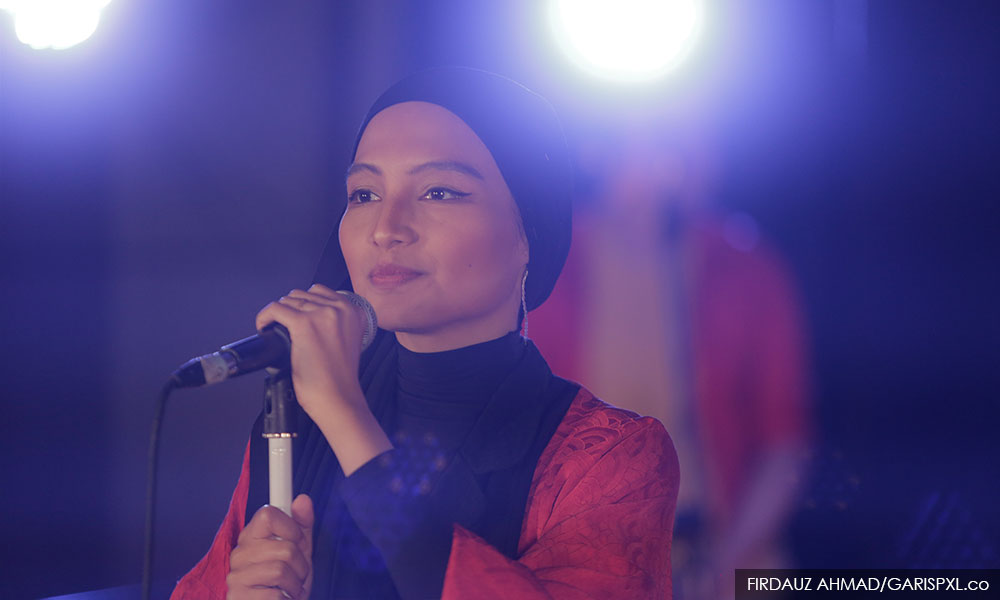
THE ONLY OPTION FOR MRKH GIRLS TO BECOME A MOTHER IN MALAYSIA IS THROUGH ADOPTION. But in other countries like the US or UK, they can consider two options, surrogacy and uterine transplant.
Surrogacy is illegal in Malaysia and many other countries, but uterine transplant is a method we're currently working on with local obstetricians-gynaecologists.
Through this technology, a mother's uterus can be transferred to her child. So the uterus that carries the child, can also carry the grandchild.
IF THAT HAPPENS, IT WILL BE BEYOND MY TIME. I am doing it now for the generation still in school. I hope they can know what it feels like to have a uterus.
That would be like having my dreams come true, living my dream through other people.
I NEVER INTENDED TO USE MY SONGS AS A VEHICLE FOR MY ADVOCACY WORK. But I do realise I bring up certain issues unintentionally, for example in one song titled Gelombang Dasar Laut.
The song was inspired by the Acheh tsunami and how it reminds me of the state of depression. How on the surface, the sea appears calm but down below, there is mounting turmoil waiting to explode.
That's how I look at depression, and how people conceal it very well.
As for the first single we're pushing out, it's titled Gula Melaka and it is a summary of Wani Ardy, a mix of poetry, music, not too happy but not a sad song either.
I CHOSE THE SONG BUT THERE WAS THE WORD 'TELANJANG' (NAKED) IN IT. My producer said maybe the word will be censored.
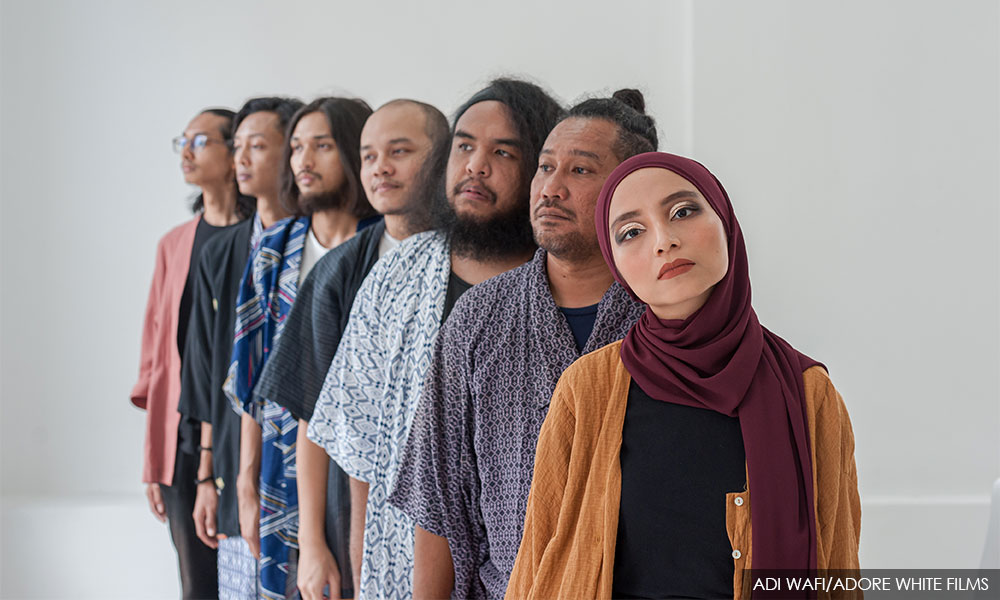
At first, I thought, "What a bummer" but then again, the limitations will push us to be more creative.
We will never have everything we need.
Even with absolute freedom, we will not have enough money to do all that we want.
I DON'T SEE CENSORSHIP AS THE ENEMY. The biggest enemy is when we stop producing our work.
When something in our body and mind tells us to stop, that is the real enemy and the real full stop. - Mkini




No comments:
Post a Comment
Note: Only a member of this blog may post a comment.